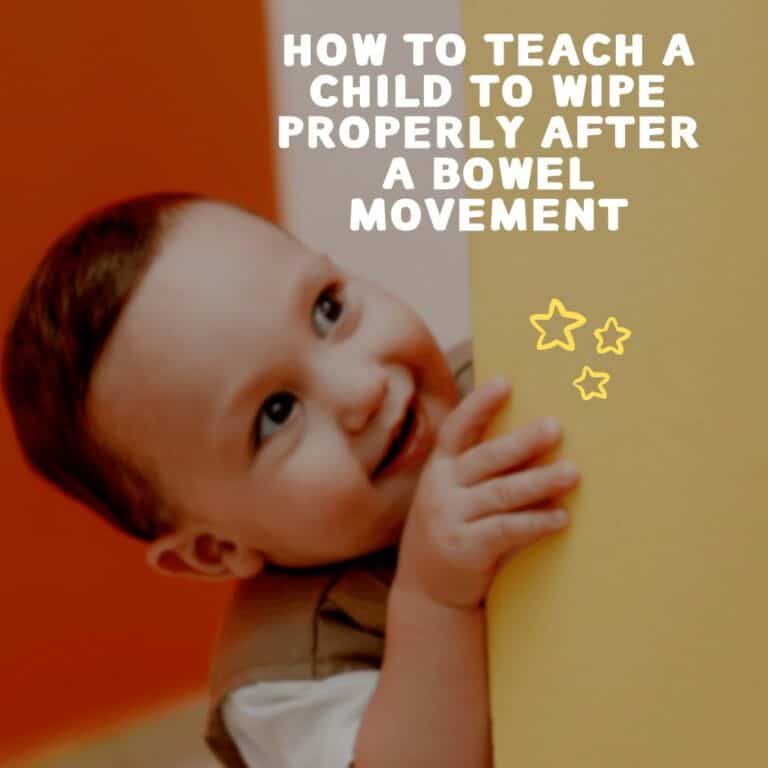There are lots of tips out there about how to take care of a newborn, but it can be hard to find one that includes all the information you need in a concise way. That’s what I’m going to do here. I’ve taken the most frequently asked questions about how to take care of your newborn and answered them
Moisten a cotton swab with 70% alcohol, purchased in pharmacies. Wipe the surface of the navel at least three times a day. Be careful to clean all around the navel to prevent infections. Keep doing the cleaning up to three days.
2. How do I know that my baby has colic or hunger? Is there a difference in the type of crying?
The cry of discomfort caused by intestinal colic is different from hunger. But rest assured, because with time and familiarity, you learn to distinguish each cry including hunger, cold, sleep, warmth, pee, diaper tight, sore, and so on.
In the case of colic, consider that it is a temporary situation, more frequent in the late afternoon and evening. In general, the complaints begin in the second week of the baby’s life and cease in the fourth month. It is a sudden and intense crying, leaving the child irritable and agitated three hours a day. Furthermore, unlike what happens in hungry, do not breast feed.
3. What can I do to relieve cramps?
Cramps result from a natural development of the child and gastrointestinal which lasts three to four months. So stay calm when your baby cries. Anxiety in adults only makes matters worse. Quiet and soft music are always welcome.
Warm bath as well. The same applies to warm compresses on the belly with soft towels. They have an soothing effect. But test the heat of the towel on your own face before putting on your baby. Another tip, move the baby’s legs, causing them to rise legs in the air. This exercise can help you eliminate excess gas. Further massaging the baby’s tummy in a clockwise direction.
The breast-feeding (always followed by belching) also contributes to the relief of discomforts. Now, the most important thing is to have patience to calm the baby. Cradling them in your arms, belly to belly, or face down on the supported extension of your forearm. And attention, offering water between feedings can impair breastfeeding, and does not resolve the cramps. Already remedies “against gases” have little effectiveness.
4. It is true that my diet can influence the baby colic?
This is still a controversial subject. More scientific studies are lacking, but there are reports that some foods eaten by the mother leave fussy babies. It is the case of chocolate, soft drinks, coffee, tea and some types of milk. Soybeans, wheat and nuts in the diet of the mother are also suspected of causing colic in babies.
5. Will I have enough milk?
Breast milk is produced on demand. The more the baby sucks, the more you produce. In other words, trust in your ability to breastfeed. Here are some basic tips. Try offering the breast frequently, whenever the baby wants it, day and night.
Make sure the baby is settled in your lap and taking the nipple of the breast correctly. Both breasts should be emptied at each feeding, alternating the starting order (get a feed with the breast that finished last). Drink more liquid (at least eight to ten glasses per day) and rest between feedings.
Escape the stress that hinders and the overflow of milk. Relaxation sessions and massages to the back usually ease tensions. Divide the taking care of the house and the baby with your partner. In the case of premature infants, who can not breastfeed, do the milking. This helps to maintain production. And you can still donate to milk banks.
6. My baby wants to nurse all the time. Is this normal?
Very normal. The baby nurses, on average, every three hours, or eight to ten times a day. However you can shorten these intervals, getting between 12 and 15 feedings in less than 24 hours. It’s the way they have to stimulate milk production and adjust it to their needs for growth. Hence the importance of giving the breast whenever the baby wants it. They knows how much they need.
7. Every time I feed do I need to burp the baby?
It is very important to get the baby to burp after each feeding. Doing this, you prevent them from regurgitating and worse, choking on the milk. But that does not mean they will, in fact, drop the stomach gases.
Sometimes the baby just will not burp. Keep the ritual of belching, positioning the small shoulder along the vertically subtle and patting his back. Just so you give the child the opportunity to eliminate the air swallowed. Which can be accompanied by milk.
As a precaution, try just putting the baby in the cradle belly up with the their head down. Important-in bottle fed babies they deserve increased attention in the question belching, since usually they swallow more air because of the differences between the nipples.
8. What is the correct position to put the baby to sleep, on their side, or face down?
The idea is to leave the bay on its side or belly up. In these positions, they are at less risk of choking on milk or suffocate on the pillow. The use of pillows shaped triangles to prop them has no contradictions. But avoid very soft mattresses, blankets and cute thick blankets.
9. What is the best time to pierce the ear of my child?
There is within a predetermined period. Some claim that earring can already be placed as soon as the baby leaves the hospital.
10. How do I unclog the baby’s nose?
Clean the baby’s nostrils with saline. It is to be applied by dropper or nasal spray. Inhalers and humidifiers are also quite effective, especially if the air is very dry.
11. I’m going back to work, but my baby only breastfeeds. What do I do?
With some exceptions, the baby should be fed exclusively by the mother’s milk until they are 6 months old. The idea is that it directly comes from mom’s breast. Now, if you need to return to work before that, there are options.
The first is to stop your business to nurse the child. A second alternative is milking the milk yourself and leave it stored in the refrigerator before you leave home (24 hours in the refrigerator and up to 30 days in the freezer).
Here it is important to seek help from health professionals to learn how to remove the milk and offer it to the baby by cup technique. The bottle can cause the child to stop feeding before the desired time. Finally, for children over 6 months, baby food can and should be introduced.
12. How long should the baby sleep in the parents room with parents. When should they go to their own room?
Ideally, they should sleep in their own room as soon as they are brought home. But this is not a rule. Because, in the first half of life, the baby requires a lot of the mother during the early morning.
There are few who wake up every three hours to nurse. Therefore, many women choose to keep the child beside her bed in the first phase (usually in the first three months), which provides a little more comfort and health (physical and emotional).
Once this period is over, however, it is imperative that the baby go to sleep in his own room. Otherwise compromise your emotional independence and create serious problems for the couple’s relationship. Another important guideline never sleep with the baby in your bed it is dangerous for the child.
13. How do I know that my baby has re-flux?
Re-flux is more common among premature babies, but also affects the “term infants” (that’s the technical name). Vomiting after feedings (fresh milk), weight loss, irritation, coughing and restless sleep at night may suggest re-flux. If that is the case with your child, see their pediatrician to confirm the diagnosis.
Now, if the child takes a few gulps sucked because too much or not burped right, do not worry because this is normal. Also because the valve which prevents back milk is still immature.
14. My son sleeps well during the day and spends the night awake and crying. How do I change this habit?
Have patience. He probably acquired this habit because he got used to the presence of someone on hand to calm him at night. It is important that the baby feeds only when there hungry. If every grunt, parents get up, make noise or light up lights, the trend is that the child will awaken.
Worse still offer some water or put them on your lap. If your child changed schedules time it takes time to make him understand that there is day and night. The morning and evening, windows open to let the sun in and the air circulate, especially during sleep.
In these periods, wake the child so they wake up every three hours. Make they lie awake for awhile. At nighttime, clear lights, gently explain that it was time for sleep and resist the temptation to get up every 15 minutes just because the baby has issued some sound.
15. How old should the baby be before putting them in the swimming pool?
As a precaution, wait at least until the third month of life, when the baby has already completed the primary vaccination series. But inspect the condition of the pool. Ideally, water treatment is done on the basis of salt, ozone, not chlorine. Which can be harmful to the child’s skin in the wrong dosages.
Note also cleaning both water edge and other surfaces. And make sure the temperature is comfortable, between 86 and 89 º F. The pH of water is another thing to consider. It should be around 7.2 to prevent the baby’s eyes from burn during the dives. Finally, beware of cold drafts when removing the baby from the pool. Dress warmly logo, mainly protecting ears, chest, back and head.
16. My husband and I split up. Can this harm our baby in any way?
Of course the baby feels the difference. Every separation causes stress and emotional instability affects the couple’s child. But if the child feels supported in the process, the damages are usually milder, especially when compared to the damage caused by a marriage held together for the sake of the child.
Therefore, the most important is that the baby feel loved unconditionally by his father and mother, if they are together or apart.
17. When can I take the baby for a walk outside?
Use common sense. There is no rule. The idea is to leave the newborn indoors, to protect them from diseases. After the first month, then yes you can already think of taking it for a short stroll outside.
The most important thing here is to avoid groups of people, indoors, strong sun and chill, especially by the third month. That is, until the first vaccine doses are complete.
18. Premature babies have different development? Do I need to give the baby special care?
Yes, they are more sensitive and require additional stimulation to develop. The multidisciplinary approach is important, especially with physiotherapist and speech therapist. Depending on the extent and possible consequences. One neurologist should also participate in the care of the baby. Otherwise, the procedures are the same breastfeeding, bathing, etc.
19. How do I stop the baby hiccup?
The best method is to burp the baby. Unlike what many moms think the sob has to do with cold or moisture. It usually happens after feedings, just when the baby is on a full stomach. Breast milk and gases cause hiccups.
20. My son is 6 months and only sleeps in my lap. What should I get him to sleep alone?
He just sleeps in your lap because he got used to it. To change a habit, parents also have to wing themselves. Start trying to put the baby in the cradle without departing until he falls asleep.
Wake up early, try to calm him only with your presence without picking him up, until they go back to sleep. Transitional objects that holds the smell of the mother, as a blanket, can also be placed near him. But remember that you will need a lot of patience, firmness and tenderness to reverse the situation. Try not to get stressed.
21. My daughter is over 6 months, but does not accept food at all. What do I do? I’m afraid she will lose weight.
Do not be afraid. The key is sticking with patience and care. Gradually, she will eat. And no stress. The child picks up in the air adult anxiety and then the situation becomes more difficult.
Know that babies resist the introduction of new foods in the diet, especially solids. To handle the situation, try to stimulate the sense of smell, use a tone of gentle and subtle talk, smile unconditionally. It is also very important to follow a ritual, with fixed schedules, armchair, with television off, ditto mobile and so on. Children like routines.
22. What I do for my baby to calm down and sleep? Some nights nothing works. Is the baby overstimulated?
Forget about “overstimulated.” Check only if the baby is uncomfortable question for some more tangible, such as hunger and wet diaper. If no apparent cause, keep the baby up until a little later, and when you realize you’re falling asleep, put him in his crib.
Evidently, a warm bath, relaxing massage, soft light in the room and quiet music can help the baby sleep. Do not accustom the child to sleep in your lap at bedtime. Taking these habits can then be more difficult than doing them so sleep for now.
23. How old can my baby be to start watching TV?
There is no rule regarding the TV. But it is absolutely unnecessary to expose a baby to restricted stimuli of a TV. There are other more formal interactive entertain for a baby. The trick is to leave it on the floor or in the crib with toys suitable for their age whenever you can. Music is also a great option.
More of a visual stimulus, the child has to move, experience textures, smell things, having a three dimensional view of the world etc. The advice that the idea is to present the television to babies only after 6 months, and no more of that one hour a day.
24. When can I put my baby in a walker?
The walker is inadvisable. Firstly, because of the risk of accidents. There are rare cases in which the walker Baby Bonnet and hits his head violently against the ground. Moreover, the machine does not stimulate the muscles responsible for properly running. Instead, it creates addictions can be detrimental to their development.
Prefer to cover the floor with a material to cushion impacts and be cleaned frequently, leaving the baby free to move at will. Rubberized mats and covers are good options.
25. My daughter sometimes goes up to a week without a poop. Is this normal? How do I prevent the dryness?
That is age dependent. Infants who breastfeed exclusively breast milk can stay without a bowel movement for up to seven days. But even so, if any of your children don’t have a bowel movement , report it to the child’s pediatrician.



